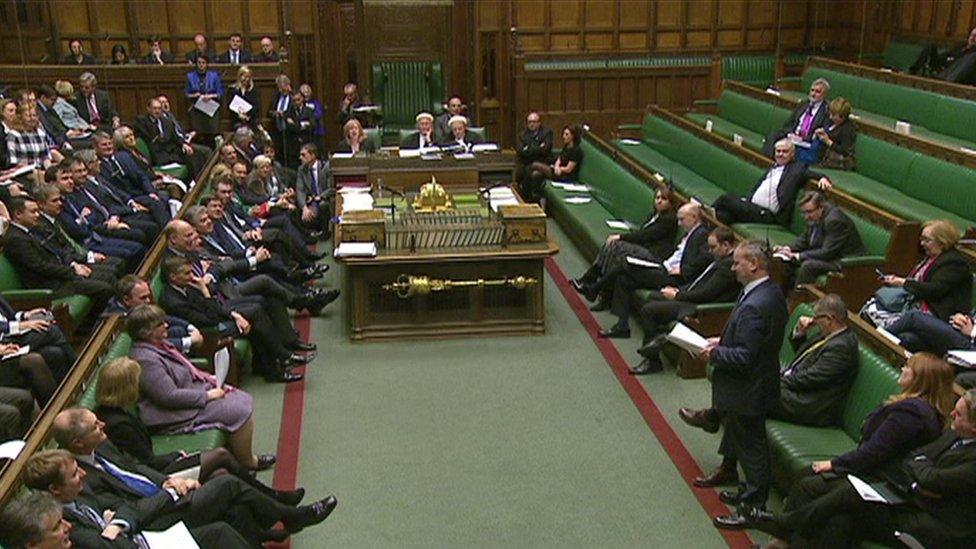Ministers face battle to get Housing Bill into law
- Published
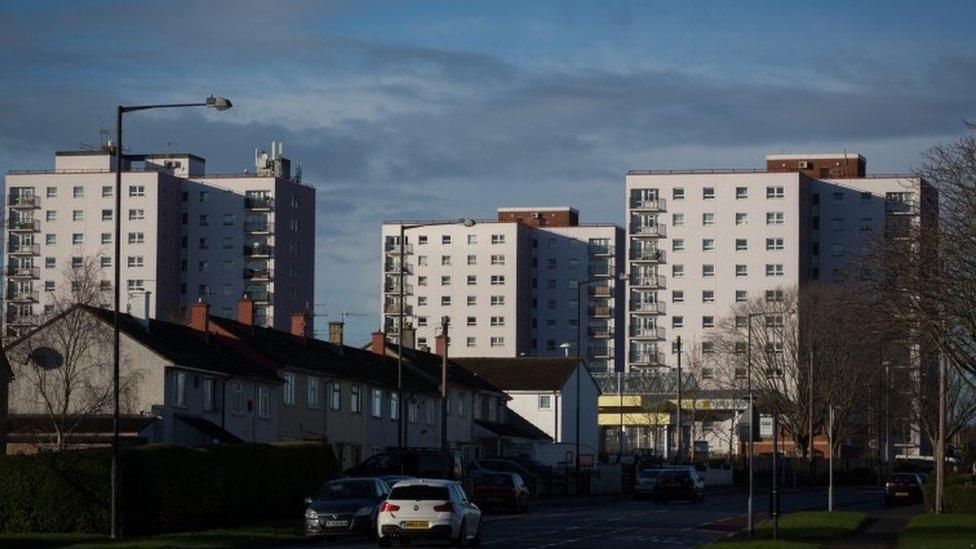
The government remains in a race against time to get its promise to build 200,000 starter homes into law.
Peers continue to defy ministers over its Housing Bill, external, voting to reinstate a number of measures rejected by MPs.
They backed calls to give councils more room to consider alternative sources of affordable housing while allowing them to keep part of the money when they sell off high value homes.
Ministers have made several concessions after suffering 18 defeats on the bill.
'Pay to stay'
The bill is "ping-ponging" between the two houses - with the government desperate to get it into law before the end of the current parliamentary session next week.
If it fails to do so, it could see its manifesto commitment to building hundreds of thousands of "starter homes" in England and Wales delayed.
MPs voted on Tuesday to reject 13 amendments to the Housing Bill demanded by the House of Lords. They backed higher rents for people with a household income of £31,000 or more (£40,000 in London) and plans to make councils sell "high value" homes to pay off the deficit.
It was thought the Lords would have to water down some of its amendments after Housing Minister Brandon Lewis declared them budgetary measures, meaning the House of Commons has the final say on them.
But the peers stood firm when the bill returned to the Lords on Wednesday, inflicting five defeats and forcing ministers to adjust their plans to push up rents for "high income" tenants of social housing in England.
The Lords had voted to soften the impact of so-called "pay to stay" plans, which would see council tenants in England paying higher rents.
Ministers have now said the minimum income threshold at which tenants would find themselves liable - £31,000 outside London and £40,000 in the capital - would only rise in line with inflation every year while the increases would come into force more gradually, with a taper rate of 15% rather than 20%.
Speaking on Tuesday, Lyn Brown, Labour MP for West Ham, backed the Lords amendment, telling MPs: "This is a tax on aspiration, and the idea that a family in London that earns £40,000 a year is rich is baloney.
"It costs an awful lot to live in this wonderful capital city of ours - something that the minister is failing to grasp."
'Damaging plans'
The Lords also wanted guarantees high value properties sold off by councils to fund the government's plans to extend "right to buy" to housing association tenants in England would be replaced by similar homes in the same area, amid fears long-standing residents would be driven out of their home areas.
The Lords may now have to water this amendment down after it was rejected by MPs in Tuesday night's vote.
Mr Lewis said the government had made some concessions to the demands, but he accused peers of wanting to "wreck" the bill, which includes plans for more "starter homes".
He told MPs: "We are determined to deliver for Britain on our election promises.
"The manifesto on which this government was elected set out a very clear statement of intent about a viable extension of the right to buy, paid for by the sale of higher-value housing, and about 200,000 starter homes by the end of this Parliament."
Labour's shadow housing minister John Healey said: "The Housing Bill will mean the loss of thousands of affordable homes while doing nothing to fix the causes of the last six years of failure on housing.
"Ministers showed yesterday that they still have no answers to concerns from housing experts, campaigners, MPs and peers."
He added: "If ministers want to fix the housing crisis then they need to listen to the opposition coming from all sides and rethink their damaging plans."
- Published7 February 2016
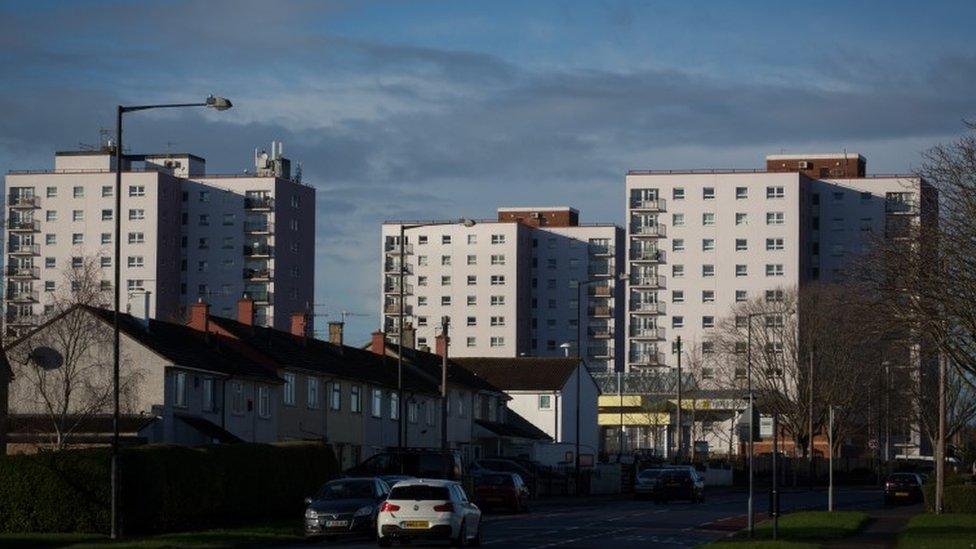
- Published21 September 2015
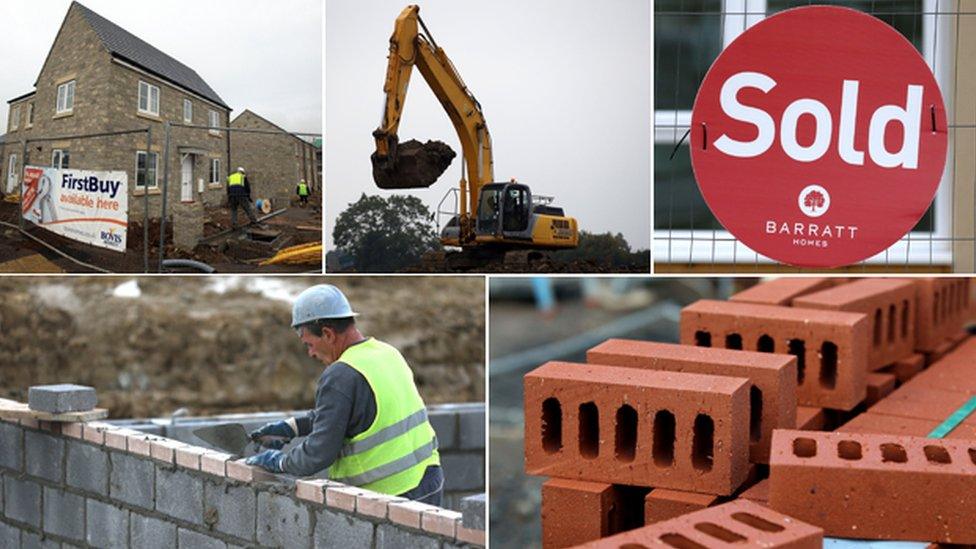
- Published24 August 2015
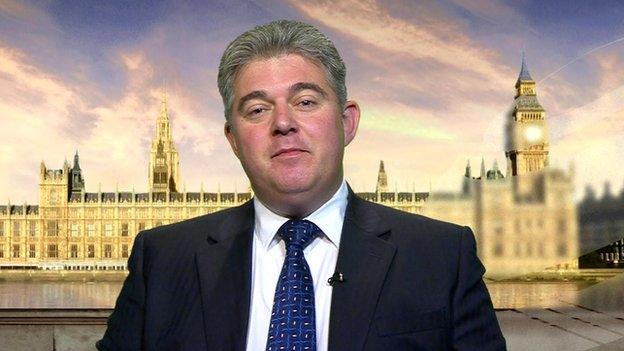
- Published12 January 2016
